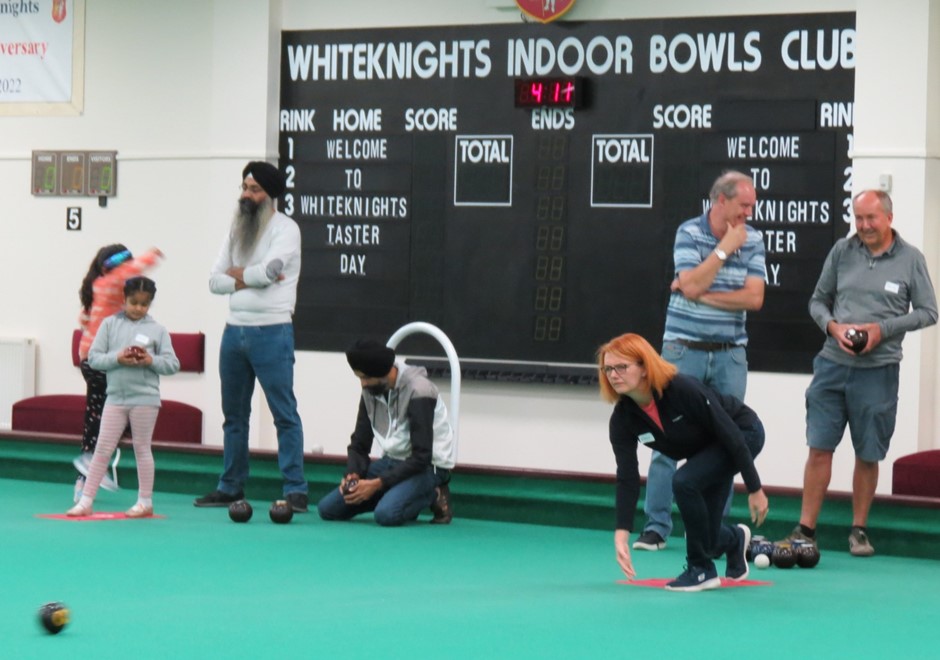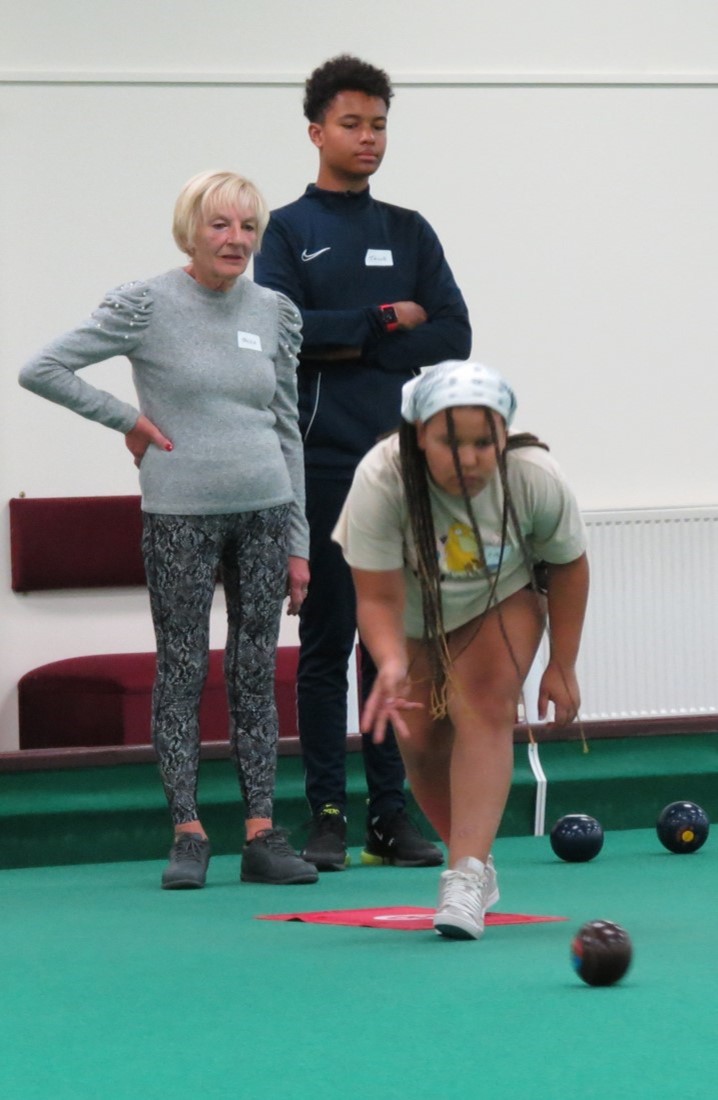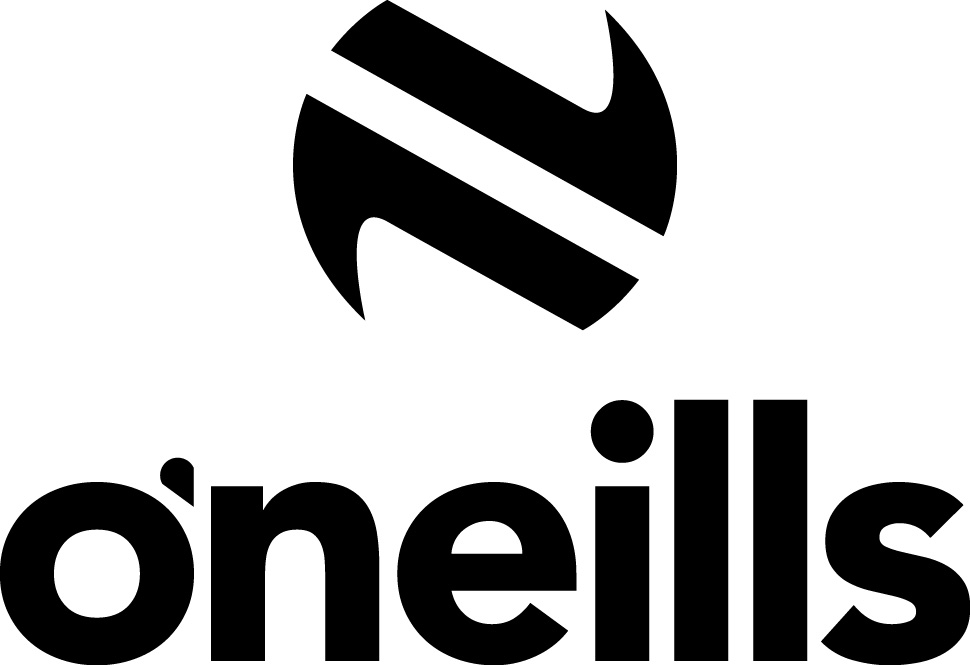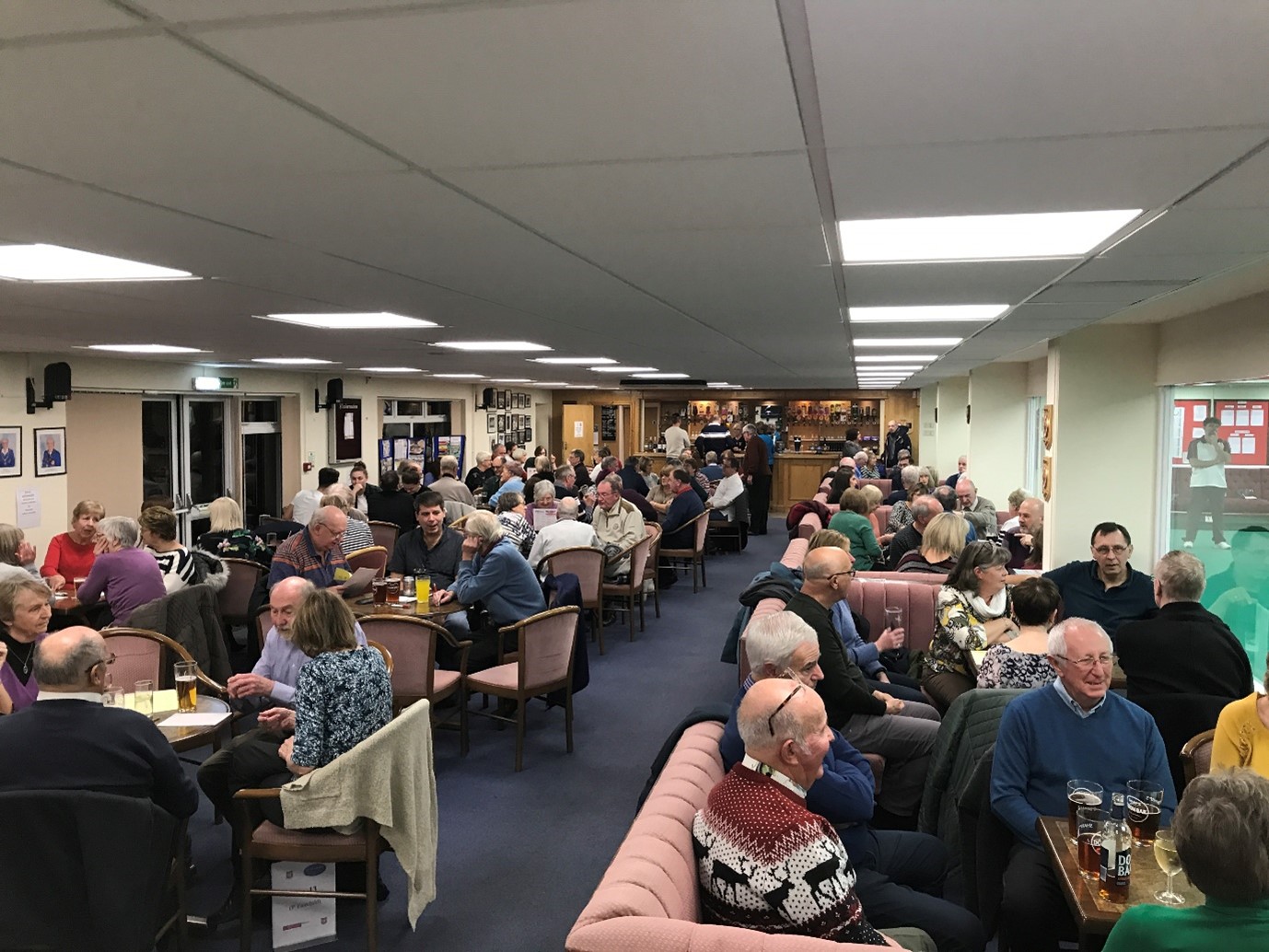 |
The EIBA is pleased to acknowledge the following Official Partners & Suppliers
|
Interview with Andy Knapper |
When Andy Knapper started as Club Manager of Whiteknights Indoor Bowls Club in Berkshire in 2014, membership
was on the decline year on year, a long way from its Eighties heyday when there were 1,200 members plus a waiting list to join.
But eight years later, the club has just welcomed almost 200 people through the doors as part of its annual open days, with 40 already
signed up for the new season and 70 more committed to coaching sessions. 
So how has such a turn-around been possible? Andy says the key is to regard the club as a business. “Everything that used to be done at the club was run through a board of directors and myself,” he said. “Any kind of open days and taster days would be planned by the board and in committee meeting environments you start talking about a theme and people start going off on a tangent, you get loads of different opinions, hear about individual experiences and the result is that you lose track of stuff quite quickly. “The focus goes and before you know it, you are on to the next thing, having not given the original matter the amount of time and effort that it needs. “We found that we needed to break some of the projects down so that they could be looked at in a bit more detail so set up sub-groups within each of the areas of the board.” The Marketing and Membership sub-group consists of five people who meet on a monthly basis and are specifically focussed on member retention, going out and raising the profile of the club and planning and organising open days. Andy said: “Each time we meet we have 2/3 hours of really good discussion. “Within the sub-group we take away action points that we are all responsible for and we report back when we achieve. We have found this to be a really good way of getting things done. “One person is responsible for social media. Whiteknights uses Facebook and Twitter for general, generic posts plus guests posts on the pages of local groups that are in the area. They also took out a paid for a Facebook advert this year for the first time, putting a post out for three weeks prior to the open days. Another person on the sub-committee is responsible for magazine and newspapers which includes free publications in the area. Andy said: “We invited the editors to come and see the club and what we were about, have a look round and then we wrote a press release for them to use and sent them photos. “They also published a flyer for us.” This year the club also targeted 30,000 homes in the area, using a local group of retired people to deliver flyers. The cost of advertising and marketing the open days is in the region of £4,000, which may sound steep but Andy says it has already more than paid for itself. “We had 195 people through the doors on the two days,” he added. “After the first run of people we have had 40 members paid up. As our subs are £150 for the year, we are already in profit from everybody in, plus we have had 70 plus signed up for weekly coaching so the take up has been incredible. I would be amazed if we do not get 100 to 120 new members this season.”  Before the Pandemic the club would run open days on the first two Sundays of the season from 9am until 4pm. Before the Pandemic the club would run open days on the first two Sundays of the season from 9am until 4pm.However the pattern was that people would arrive between 9am and 11 am and then only a handful of people would be at the club across the rest of the day. Andy said: “Everyone would all flood in and it would be manic, we would be rushing them on to the green and around the club just to get the next people on and the experience was awful. We were not selling the club as it should be. “We stumbled upon a booking system because of Covid but it means that we have structure. We now know who is coming, we can assign coaches and volunteers to each rink and we can ensure that sessions run smoothly. “You want the right people to be showing off the club in the right light. “When people come to the front desk, we try to find out what they are looking for in a club, whether they are looking for social bowls or want to be more competitive and we can tailor activities for them. This also allows us to find out how they found out about the day so we know if we have spent money in the right places. “They are then taken to the rinks where the coach does a very brief session, nothing too technical, less is more, we couldn´t care less where the bowl goes, the aim is just to get as many bowls down as possible.” At the end of the session the volunteers give a tour of the club and take them into the lounge where food and drinks are provided and the volunteer talks about their experience of bowls. This year Whiteknights produced and printed membership welcome packs for each attendee. Andy said: “This really helps new members to let them know about the club. It breaks it down, keeps things and simple as possible. It includes a membership form and a list of matches plus social fixtures. Everything is in the same place, it is neat and tidy, people can take it all away. It is professional and has made the world of difference.” So what happens after the successful open day when the new members have been secured? “It is all good and well putting the day together and it is a great success but the next steps are crucial,” Andy said. “It´s fine if you come in and you have bowled before and someone snaps you up for a league team but most people are unsure and need some guidance. “New members are contacted regularly by the club and guided towards a number of initiatives including new bowlers´ roll ups, a welcome coffee morning in November and new bowlers´ leagues where slots are booked across all the days and all the different times so that everyone gets an opportunity to play. “When we first started not so many wanted the leagues but after people had bowled for two years, they wondered what the next step was. We didn´t have something in-between so we set up an evening open triples which became a feeder league and it has grown and grown. “It is great for the club because leagues are bread and butter income. “Now we have an appetite for league bowls. This year we had 15 teams of new bowlers across various leagues which is about £1,000 a team in rink fees and drinks. “Every team for us is absolutely crucial and paramount for a successful club.” Andy is not afraid to discuss figures and believes that other clubs can be held back by not having a clear grip on finances or thinking about what value members get for their money. Another aspect of club life he recommends is running social events and creating a community feel to the club. Finally, Andy advises welcoming new faces at the club with corporate events. “It is about using social media and knocking doors down,” he said. “I regularly ping out emails to large businesses in the area. It´s amazing how people talk and the ball starts rolling. We had an NHS group that came to book a room for a meeting. “When they were here we put on a little bowling session for them and that led to an eight-room booking for the year including food and drink. “They have spread the word to another NHS group which has led to 50 people booking for Christmas dinner. “If you do it well, you can undercut the places they are going to. We can do a buffet for half the price that a hotel can while it still is very profitable for us. If you can get them on the green too, it is even better. “Clubs need to think about what they can do that they are not already doing. “They also need to get their heads around what they charge against the running costs of the places, especially at the moment. Business acumen needs to come in to it.” Before Covid Whiteknights were well on the way to hitting a target of 1,000 members for its 50th anniversary which is this month. But circumstances forced the club to shut its doors for over a year and when it re-opened membership had dropped to around 600. “In the last year we have grown it back again,” Andy said. “But it takes work and I do think a lot of clubs are struggling because they are underselling themselves. “You also have to be careful with introductory membership prices because people will not like it when their subs jump up dramatically after one year. You have to think about the long game. “Things have changed massively at this club in eight years. The ethos has shifted, we are trying to create a member experience. Members have a lot that they can get involved with and a lot is offered. “For me the most frustrating phrase is ´We have always done it this way´. That mindset needs to change. It is about trying to be more professional. As well as a club we are a business and the nuts and bolts of it are that we need to be making a little bit of money to put away so we can start doing projects in the club. That includes repairs and replacements and improvements. “Indoor bowls is appealing because more than anything it is the social aspect. The fact that you are in an enclosed space, you are forced to be social and I think a lot of people do not see that side of it. “The question for every club should be what are you going to do to fill those rinks on the days you are quiet? How can you get 100 new members? Start seeking and looking at things as an opportunity. “Nothing will change unless you start being proactive and plan. If you can do that and do it well, other clubs will be copying you. “Clubs are not in competition and the reality is if one goes down the pan, it will negatively affect your club. We should be doing more to help each other.” Sian Honnor Previous Article Yaz Hasan Previous Article Nick Brett |
October 2022
|
Archives |
Accessibility |
Downloads |
Guidance Notes |
Links |
Photos |
Contact Us |
Privacy Notice
Registered in England & Wales No. 06714071. Copyright English Indoor Bowling Association Ltd 1999 - 2025 |


-(003).png)







